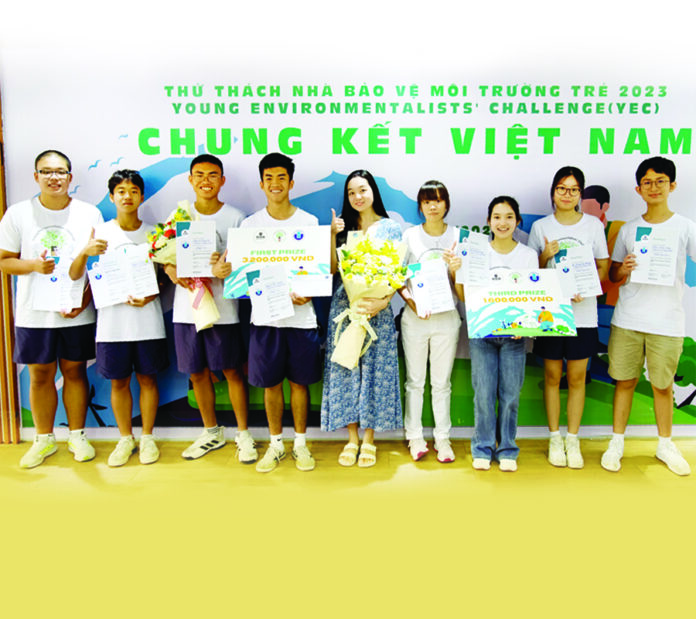Two teams of Vietnamese students from Lawrence S. Ting School won the top prizes at the international final round of the ” Young environmentalists’ Challenge ” Contest.
Two Vietnamese student teams won first and second prizes
The international final round of the “Young environmentalists’ challenge” Contest is an online contest organized by the International University (Vietnam National University, Ho Chi Minh City) and Deakin University (Australia) on April 4.
This round has 9 teams from three countries including Vietnam, Malaysia and Sri Lanka. In the end, team Garyy Lee – Vietnam of Lawrence S. Ting School (District 7, Ho Chi Minh City) excellently won the first prize. Team Peach and Psss – Vietnam of Lawrence S. Ting School won second prize and team Snailians – Malaysia won third place.

Impressed with the idea of protecting the environment from agricultural waste
The “Garyy Lee – Vietnam environmentalists” had an impressive presentation about the research on manufacturing soundproofing materials from agricultural wastes. From the above research idea, Garyy Lee members focused on finding and manufacturing soundproofing materials from agricultural wastes such as coir, bagasse and peanut shells to create environmentally friendly soundproofing materials.
Accordingly, bagasse is treated and lignin removed, and combined with coconut fiber and peanut shell powder in the ratio 3:7, 5:5, 7:3 in volume to make soundproof materials. Tests show that materials made from coir and bagasse, bagasse and peanut shells are about 10% better at absorbing sound than styrofoam.
The results show that the sound insulation ability of materials made from coir and bagasse, bagasse and peanut shells will vary depending on the sound intensity, through experiments showing that the material has a ratio of 3 :7 has the best sound insulation, with the largest percentage of soundproofing up to 46.4%.
Environmentally friendly film
According to ” Peach and Psss environmentalists”, Vietnamese mangoes are exported to the international market in large quantities. However, the mango quickly darkens after ripening, leading to loss of aesthetics and the quality is not at its best.
Because of this problem, food films have been used to wrap the mangoes and preserve them during import and export. This leads to another problem – plastic food wraps are being used and discarded a lot every day, causing a very negative impact on the environment.
“Since then, the research team has come up with the idea of extracting and manufacturing food wrap from pectin, a material with many researches in this field, to preserve Vietnamese mangoes when importing and exporting. Through research, the research team chose orange peel as the most effective source of pectin to extract” said Phi Hoang Mai Phuong, the group’s representative.
(Source: Tuổi Trẻ)








